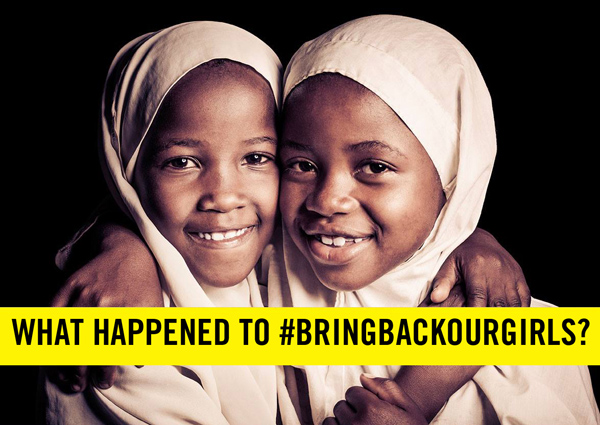THURSDAY, SEPTEMBER 18, 2014 -By Jacqueline Hansen, Major Campaigns and Women’s Rights Campaigner
The disappearance of more than 270 Nigerian schoolgirls in April 2014 led to a worldwide social media campaign to #BringBackOurGirls. Tens of thousands of Amnesty International supporters signed our petition targeted at the Nigerian authorities. The world watched, and waited. Then the social media campaign faded and the issue disappeared from the headlines. Five months later the girls are still missing. And in the intervening months many more girls, boys, women, and men have been kidnapped by Boko Haram fighters.
Amnesty International has called on the Nigerian government to do its utmost to safely bring back the girls. Many governments provided support to the Nigerian authorities to assist in the search. And five months later it frustratingly feels like we are no closer to finding the girls. If only finding and bringing them home was as easy as using a high tech satellite to locate them, and more high tech equipment to extract them from where they are held captive and bring them home to the open arms of their families. If only it were so simple.
But it isn’t so simple.
To understand why the girls went missing and why it is so difficult to bring them home we need to look at the context in which the girls were kidnapped. There is a conflict in northeast Nigeria and it continues to escalate. Amnesty International has documented gross violations of human rights by both sides to the armed conflict—Boko Haram and the Nigerian authorities. As the conflict worsens, more people have been kidnapped by Boko Haram. Nigerian forces have been outgunned, outnumbered, and unable to stop the attacks. No one is in a rush to help better arm the Nigerian authorities to fight Boko Haram because of the widespread pattern of human rights abuses at the hands of Nigerian police and military officers.
In March of this year Amnesty International released a report on the escalation of violence in northeast Nigeria and the rising death toll—in the first quarter of the year alone more than 1,500 people had been killed. The report highlighted the systematic pattern of rights abuses and laid out recommendations for both the Nigerian government and Boko Haram to comply with their human rights obligations.

